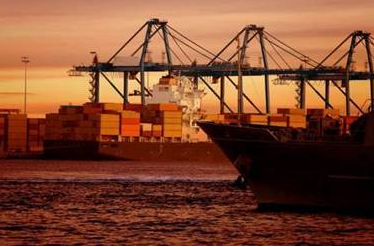
SEA FREIGHT
The current situation in the Red Sea has led the major shipping lines to reroute a majority of containerships through the Cape of Good Hope.
This represents more than 350 vessels and close to 5 million TEUS over a two-week period.
While some carriers are currently considering a partial return to the Suez Canal, the situation remains highly volatile, and some important disruptions are to be expected in the coming weeks.
Below are some key factors that are likely to impact supply chains:
- Transit times extended by 10 to 20 days
- Extra delays due to refuelling at Africa ports
- Extra delays due to Port congestion upon arrival
- Container imbalance leading to a lack of equipment ahead of the Lunar New Year peak season
- Increased capacity constraint
- A combination of surcharges and increases meant to cover the extended journey, insurance premiums,…
This situation should also have a direct impact on other means of transportation:
- Rail: There has been a significant increase in rail bookings from China to Europe and back. Though a great alternative, this mode has a high chance of becoming quickly saturated.
- Air: The increased ocean transit times shall put pressure on inventories and have an immediate repercussion on Airfreight capacities, with significant price hikes expected on major trades.
The major shipping lines remain divided on sending vessels through the Suez Canal and the Red Sea as they continue to acknowledge that safety remains a concern.
With the deployment of the international security coalition in the region, several carriers, including Maersk, are beginning to restore some services, while others continue to say it is too soon due to the instability and safety issues.
After showing that 15 routes were being impacted by the diversions around the Cape of Good Hope, Maersk has begun to reverse some of the changes on an individual case: Maersk said it was preparing to allow vessels to resume the transit and was working on a plan for the first vessels to make the transit.
CMA CGM yesterday reported to customers that some vessels have made transit through the Red Sea and that it is “currently devising plans for the gradual increase in the number of vessels transiting through the Suez Canal.”
After one of its vessels was attacked off the coast of Yemen, MSC Mediterranean Shipping Company said, “Until their safety can be ensured, MSC will continue to reroute vessels booked for Suez transit via the Cape of Good Hope.”
Evergreen Line announced that it would be rerouting vessels “until further notice.”
Carriers are anxious to maintain security while also wanting to reduce the delays and disruptions to their service, all of which are adding to the costs.
Analysts highlight that the diversion around Africa can add up to two weeks for a vessel sailing from Asia to Northern Europe and nearly three weeks for services into the Mediterranean from Asia.
Even sailings to the U.S. East Coast require an added week of transit time to go around Africa.
As a direct consequence, freight spot rates have increased by as much as 26% over the past four weeks since the security issues began.
The disruptions also mean that additional capacity and vessels need to be made available if the carriers are to maintain their scheduled departures.
The current situation in the Red Sea has led the major shipping lines to reroute a majority of containerships through the Cape of Good Hope.
While the US-led international coalitions increase defensive measures in the Red Sea, carriers continue to adjust their routes and 299 vessels are now rerouted towards the Cape of Good Hope.
Approximately 18% of global shipping capacity is being affected.
Concerns remain that the aforementioned security measures will not be sufficient for major shipping companies to resume the Red Sea transits any time soon.
Maersk, whose containership was struck by a missile over the weekend, initially paused all Red Sea and Suez Canal transits for 48 hours.
Yesterday, they announced an extension of the pause until further notice and expressed the intention to resume Red Sea transits as soon as ‘operationally possible’.
In the meantime, in cases where feasible, they are rerouting most vessels via the Cape of Good Hope until safety at the Red Sea is restored.
Similarly, Hapag-Lloyd and MSC have confirmed that their vessels will persist in rerouting via Africa until at least January 9th and until further notice.
The unstable conditions continue to exert upward pressure on freight rates and spot rate indexes, causing further disruptions and delays to global supply chains.


